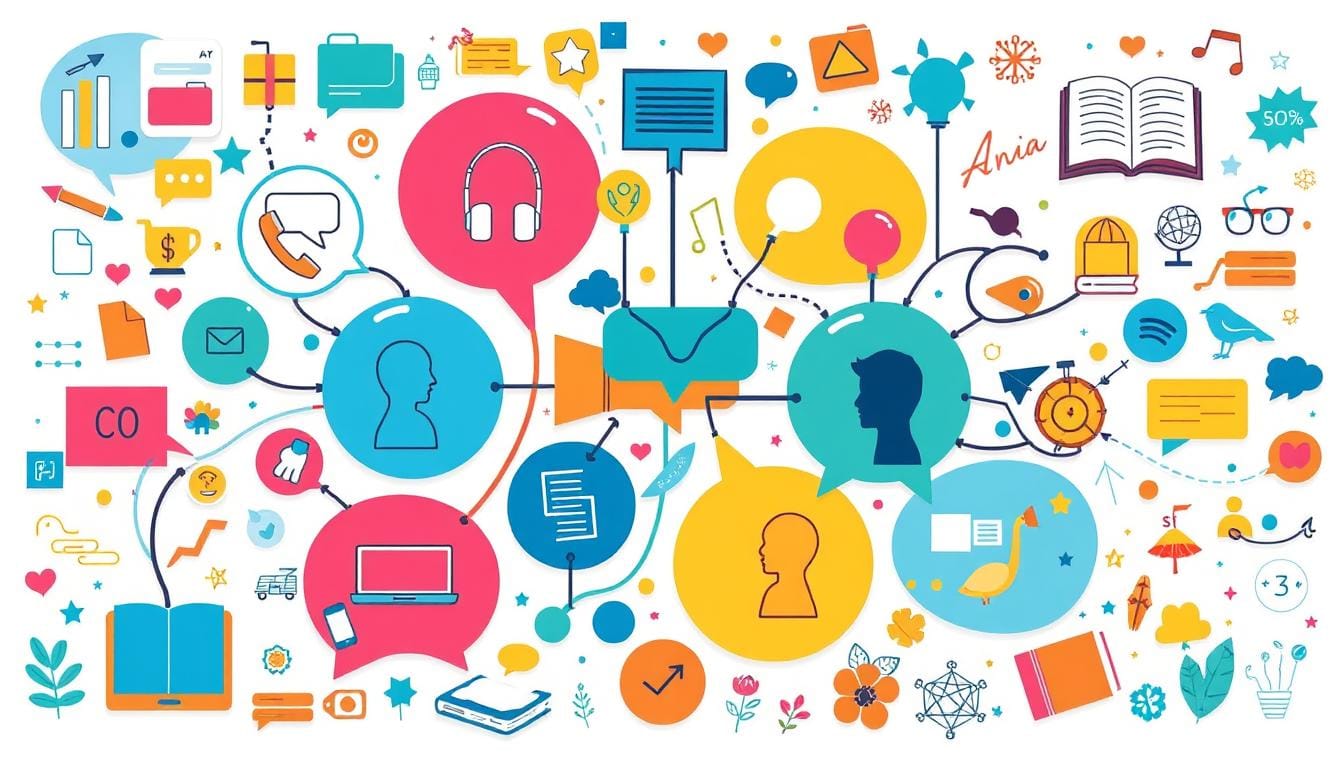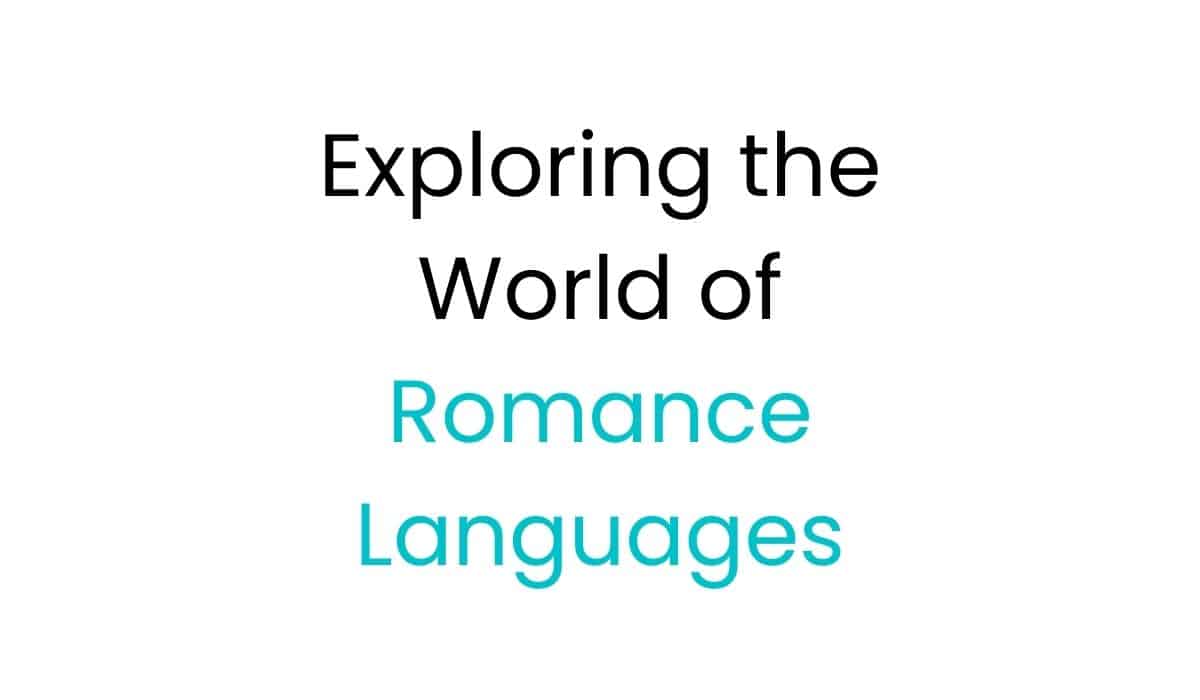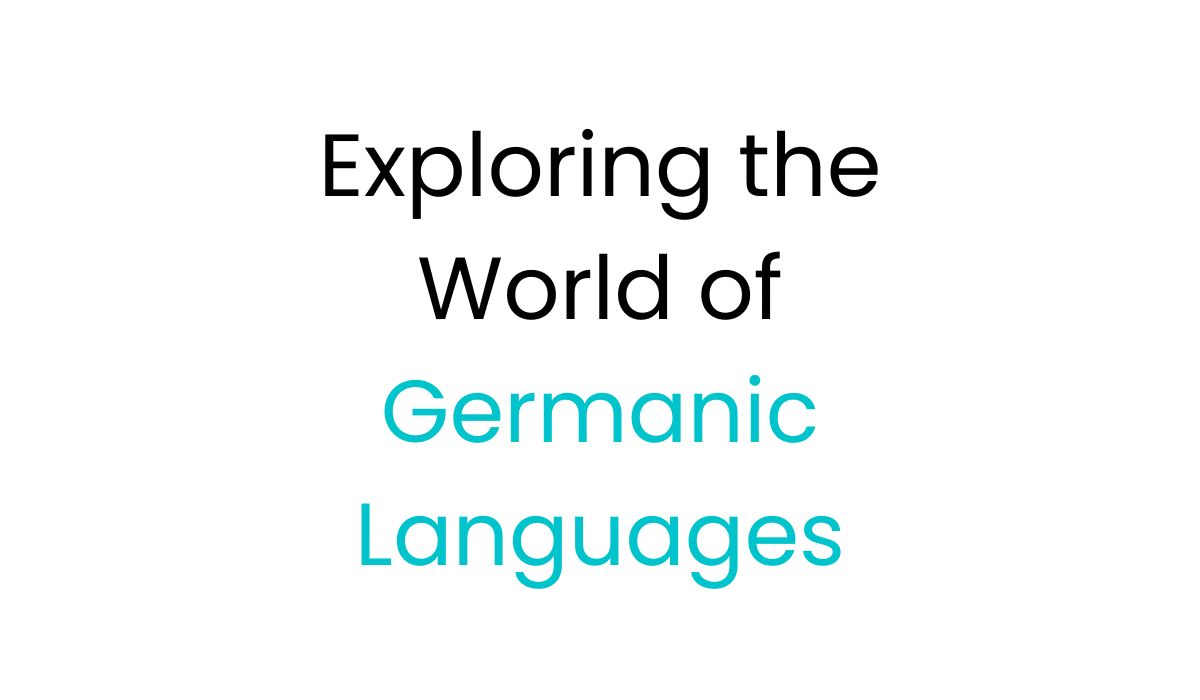In today’s world, speaking many languages is very valuable. A polyglot is someone who can speak several languages fluently. These experts are known for their amazing ability to move through different cultures with ease.
Polyglots are not just good at speaking their own language. They can also speak many other languages with confidence. This skill is not just a talent but also a must in our connected world. As the world gets closer together, the need for people who speak many languages grows. This makes polyglots very important in work and personal life.

Key Takeaways
- Polyglots are individuals who can speak multiple languages, not just their native tongue.
- Multilingual abilities are becoming increasingly important in today’s interconnected world.
- Polyglots possess exceptional linguistic skills that allow them to navigate diverse cultural landscapes with ease.
- The demand for polyglots continues to grow as the world becomes more globalized.
- Polyglots are admired for their remarkable language learning abilities and adaptability.
- Key Takeaways
- Etymology and Historical Context
- Modern Interpretation of Polyglot Skills
- Statistics on Global Multilingualism
- Required Language Proficiency Levels
- Time Investment and Dedication
- Learning Approaches and Methods
- Language Interference and Mixing
- Maintaining Multiple Languages
- Time Management Strategies
- Digital Immersion Techniques
- Cultural Integration Strategies
- Learning Techniques from Expert Polyglots
- Inspirational Journey Examples
- Daily Practice Schedules
- Progress Tracking Methods
- What is a polyglot?
- How common are polyglots?
- What are the characteristics of a polyglot?
- How does one become a polyglot?
- What are the benefits of being a polyglot?
- What challenges do polyglots face?
- What are effective language learning methods for polyglots?
- How do polyglots utilize immersion techniques?
- What tools and resources do polyglots use?
- Who are some famous polyglots?
- What career opportunities are available for polyglots?
- How can aspiring polyglots build a sustainable language learning routine?
Understanding Polyglot Definition and Significance
A polyglot is someone who can speak and understand many languages. Only about 3% of the world’s people can speak four or more languages. These individuals are driven by curiosity and a love for languages.
Etymology and Historical Context
The word “polyglot” comes from Greek words “poly-” and “glōtta”. It means speaking many languages. This idea has fascinated scholars and linguists for centuries.
The term “polyglot” was first used around 1645. It meant being good at speaking many languages.
Modern Interpretation of Polyglot Skills
Today, being a polyglot means more than just speaking many languages. It’s about understanding different cultures too. Polyglots know how words and expressions change in different places.
This skill is very valuable in our connected world.
Statistics on Global Multilingualism
More people are learning to speak many languages. A study showed someone learning Romanian knew 20,000 words. This shows how hard it is to learn a language.
There are also “silent polyglots” who can write in 13 languages. They show that knowing a language doesn’t always mean you can speak it.
Visiting Romania and speaking the local language was appreciated. This shows how important linguistic diversity and multilingualism are for making connections and exchanging cultures.
“Language learning is a lifelong endeavor, and even polyglots must continually refresh their skills to maintain proficiency in multiple languages.”
Kató Lomb was a self-taught polyglot. She spoke Hungarian and was good in Russian, German, English, and French. She also knew some Spanish, Italian, Japanese, Chinese, and Polish.
Lomb’s way of learning languages was successful. She focused on motivation, time, and overcoming obstacles. Her approach shows how to master many languages.
What is a Polyglot: Core Characteristics and Abilities
Polyglots are people who know many languages. They have a special love for languages that drives them to learn and master many. This makes them stand out from others who learn just one or two languages.
These individuals have amazing memories. They can easily remember words, grammar, and sayings in their linguistic abilities. This skill lets them switch between languages smoothly. They can change how they speak and sound to fit the situation.
- Polyglots usually speak at least five languages well, with some being “hyperpolyglots” for learning 10 or more.
- Studies show that polyglots use more of their brain’s left side. This shows how hard their brains work when they multilingual skills.
- They often learn by living in the language and using it in real life, not just in school.
Polyglots also understand cultures deeply and can adapt easily. They know the small details and social hints in each language. This helps them move through different cultures with confidence. Their ability to adapt is a key part of being a polyglot.
“Polyglots are individuals who have a strong passion and fascination for languages, learning multiple languages out of love for language itself rather than practical necessity.”
In short, polyglots are a mix of smart thinking, cultural insight, and a love for language. Their skills and flexibility make them important in our world. In today’s global community, being able to talk across cultures is crucial.
The Journey to Becoming a Language Expert
Becoming a polyglot is a long journey that needs a lot of time and dedication. Many have spent years or even decades learning new languages. They dive deep into different cultures and languages.
Required Language Proficiency Levels
Most polyglots aim for a B2 or C1 level in their target languages. This is based on the Common European Framework of Reference for Languages (CEFR). At this level, they can communicate well, express themselves clearly, and understand the language’s details.
Time Investment and Dedication
Learning languages takes time. Some, like Cardinal Giuseppe Mezzofanti, learned over 30 languages. Others, like Ziad Fazah, claim to speak 58 languages. Their dedication and talent set them apart.
Learning Approaches and Methods
There are many ways to learn languages. Alexander Argüelles practices up to twenty languages daily. Timothy Doner became proficient in over twenty languages as a teenager. Techniques include immersive learning, translation, reading, listening, and cultural immersion.
“The more languages you learn, the more you realize how much more there is to learn.”
Being a language expert is a lifelong journey. It’s filled with challenges and rewards. Polyglots expand their communication skills and understand the world better by studying and practicing many languages.
Benefits of Polyglot Abilities in Today’s World
In today’s world, speaking multiple languages offers many benefits. It can boost your career and improve your thinking, understanding of cultures, and how you connect with others.
Research shows that people who speak many languages have better thinking skills, emotional smarts, and memory. They also have a bigger vocabulary and stronger grammar. This helps them solve problems and remember things better.
For kids, learning many languages is especially good. It helps them be more empathetic, creative, and able to handle many tasks at once. This prepares them for a world that is diverse and connected.
| Multilingual Benefits | Impact |
|---|---|
| Cognitive Abilities | Improved memory, problem-solving, and multitasking skills |
| Cultural Understanding | Enhanced empathy, social connections, and appreciation for diversity |
| Career Opportunities | Increased earning potential and access to diverse job markets |
Being able to speak many languages also opens up many job opportunities. People who speak multiple languages make about 19% more than those who only speak one. This makes them very valuable in the global job market.
In the end, the advantages of being a polyglot are huge. They help with global communication and cultural understanding. This makes the world a more connected and peaceful place.
Common Challenges in Polyglot Journey
Becoming a polyglot is a remarkable achievement. However, the path to mastering multiple languages is filled with challenges. Polyglots face obstacles like language interference and keeping their skills sharp.
Language Interference and Mixing
Language interference is a big challenge for polyglots. Similar languages can mix in their minds. This can cause problems with vocabulary, grammar, and accents.
Polyglots need to find ways to keep their languages separate. This helps avoid mixing and keeps communication clear.
Maintaining Multiple Languages
Keeping up with multiple languages takes a lot of practice and exposure. Polyglots often struggle to find time for their languages amidst work and family. They need strategies to stay fluent.
Regular practice and immersive experiences are key. These help polyglots keep their language skills sharp.
Time Management Strategies
Learning and keeping up with multiple languages takes a lot of time. Polyglots must plan their schedules carefully. They need time for studying, practicing, and being around different languages.
Successful polyglots use techniques like prioritizing and time-blocking. These help them focus on their language goals.
Despite the challenges, polyglots are incredibly resilient and determined. They use strategies, immerse themselves in languages, and keep their passion for learning alive. This helps them overcome obstacles and enjoy the benefits of being multilingual.
Fluency isn’t a destination; it’s a habit. Small daily steps in a language open doors to worlds you never knew existed.
– Oualid Cheddadi, Founder of Lingualid, and Author of THE LANGUAGE HABIT
Essential Language Learning Methods for Aspiring Polyglots
Becoming a polyglot, someone who speaks 5 or more languages, needs a special approach. Successful polyglots use many techniques, not just classroom learning. They focus on practicing, immersing themselves in the language, and learning on their own.
One key idea is to start speaking the new language right away, even with a small vocabulary. This method helps learners get comfortable and not afraid to make mistakes. Polyglots see making mistakes as a part of learning.
Reading and listening to native speakers, like books and podcasts, are also important. Doing translation exercises helps learners understand grammar and sentence structure better.
Polyglots believe in using the language in real ways, like speaking and writing. They think short, daily practice is better than long, infrequent study sessions.
They also make learning fun by linking it to hobbies. Using apps and online platforms for language learning helps too.
The secret to being a good polyglot is to always be open to learning and not afraid to make mistakes. Using a variety of methods that fit their learning style is key.
| Language Acquisition Techniques | Polyglot Learning Strategies | Effective Language Study Methods |
|---|---|---|
|
|
|

“Talent is not essential to succeed in language learning. Anyone can learn multiple languages by adopting the right strategies and mindset.”
– Lýdia Hric Machová, Language Mentor and Polyglot
The Role of Immersion in Language Acquisition
Immersion is a powerful strategy for those who want to learn many languages. By diving fully into the target language and culture, learners can speed up their progress. They gain a real understanding of the language.
Digital Immersion Techniques
In today’s world, learners can create immersive environments at home. Watching movies, TV shows, and podcasts in the target language helps. Also, joining online language exchange platforms and using apps are effective ways to immerse digitally.
Cultural Integration Strategies
Learning a language isn’t just about words and rules. It’s also about understanding the culture. Those who dive into the culture of the language they’re learning often do better. This means getting involved with local communities, learning traditions, and making friends with native speakers.
Immersion, whether online or in person, is key for language learners. By fully embracing the language and culture, learners can improve fast. They become better communicators and appreciate the beauty of language diversity.
| Immersion Program Type | Key Characteristics |
|---|---|
| Full Immersion | Requires the exclusive use of the target language for all interactions, both in and out of the classroom. |
| Partial Immersion | Allows learners to split their time between the target language and their native language, facilitating a gradual transition. |
| Cultural Exchange | Focuses on language and cultural exchange, fostering a comprehensive understanding of the language within its cultural context. |
| Language Camps and Workshops | Offer short-term, intensive language exposure experiences, benefiting those seeking rapid language skill improvement. |
“Immersion is the key to language mastery. By fully embracing the language and culture, you can develop an intuitive understanding that goes beyond mere vocabulary and grammar.”
Tools and Resources for Language Mastery
Becoming a polyglot, or language expert, needs a mix of learning methods. People use many tools and resources to learn new languages. There are lots of language learning apps, polyglot resources, and language study tools to help.
Duolingo is a top choice for learning languages. It makes learning fun with games and short lessons. LingQ lets you use your own texts, like podcasts, to learn. These apps make studying languages easy and fun.
- Duolingo
- LingQ
- Babbel
- Rosetta Stone
- Memrise
But, there’s more than apps. Polyglots also use books, grammar guides, and podcasts. These give a deeper look into a language. Many also join language exchange programs to talk with native speakers and learn about their culture.
| Resource Type | Examples |
|---|---|
| Textbooks | Assimil, Teach Yourself, Practice Makes Perfect |
| Podcasts | Coffee Break Languages, Español con Juan, Easy Languages |
| Language Exchange Platforms | Tandem, Conversation Exchange, Polyglot Club |
There are also online tools like blogs, YouTube, and forums. These offer lots of info, support, and motivation. By trying different polyglot resources and language study tools, you can find what works best for you.
“The most successful polyglots are those who embrace a multifaceted approach to language learning, constantly exploring new and innovative ways to expand their linguistic abilities.”
Famous Polyglots and Their Success Stories
The world has seen amazing people who have mastered many languages. These famous polyglots inspire others with their achievements. They share how they became proficient in many tongues.
Learning Techniques from Expert Polyglots
Experts like Richard Simcott and Lýdia Machová have learned over 16 languages. They share their methods, like daily practice and enjoying the learning. By following their advice, you can start your own journey in becoming a polyglot.
Inspirational Journey Examples
- Steve Kaufmann is learning new languages at 75, showing the lifelong value of being multilingual.
- Mithridates VI, an ancient king, spoke 22 languages, proving language skills are powerful in leadership.
- Elizabeth I spoke many languages, including English, Welsh, and Latin. She showed how important language skills are in diplomacy and understanding cultures.
These stories of famous polyglots show us that with hard work and the right methods, anyone can master many languages. This opens up a world of benefits and opportunities.

Career Opportunities for Polyglots
Multilingual professionals, or polyglots, have a big advantage in today’s job market. They can speak many languages fluently. This opens up many career paths that others can’t access.
In the United States, polyglots earn about $160,000 a year before taxes. This shows how much employers value their skills. These skills are needed in fields like international business, diplomacy, education, and global marketing.
Polyglots can choose from many careers. They can teach, translate, interpret, or work as cultural consultants. They can also be language coaches, content creators, or freelance interpreters. These jobs pay well and offer flexibility, letting polyglots follow their interests.
| Career Opportunities for Polyglots | Potential Earnings |
|---|---|
| International Business and Trade | $80,000 – $150,000+ |
| Diplomatic and Foreign Service Roles | $60,000 – $120,000+ |
| Translators and Interpreters | $50,000 – $100,000+ |
| Language Teachers and Tutors | $40,000 – $80,000+ |
| Cultural Consultants and Advisors | $60,000 – $120,000+ |
Polyglots have many career options across different industries and locations. By focusing on specific areas, they can increase their earning potential. This makes them very valuable in today’s global economy.
“Proficiency in multiple languages allows polyglots to work from different locations, travel the world, and adapt their skillset to various professional opportunities within a healthy economy.”
Building a Sustainable Language Learning Routine
To become a skilled polyglot, you need more than just passion and hard work. You must also create a consistent and organized language learning plan. Successful polyglots spend at least 30 minutes to an hour daily practicing languages. They mix different fun activities into their schedules.
Daily Practice Schedules
Good language learning plans include various exercises. These can be vocabulary checks, listening to podcasts or audiobooks, reading news or books, and talking with others. This mix helps improve different language skills and keeps progress going. Many learners set specific times for studying, making it a regular part of their day.
Progress Tracking Methods
It’s important to keep track of your language learning journey. Ways like language journals, tests, and celebrating milestones help. By setting clear goals and checking your progress, you can stay motivated and adjust your learning plan as needed.
“The secret to language learning is consistent daily practice. Even just 30 minutes a day can make a significant difference in your progress over time.”
Creating a good language learning routine needs balance and flexibility. Mix different activities, set reachable goals, and track your progress. This way, you can build the habits and discipline needed to master many languages.

Conclusion
Becoming a polyglot is an amazing journey with many benefits. It requires dedication and effort, but it makes life richer and opens doors to new opportunities. Aspiring polyglots should enjoy the learning process and keep working towards their goals.
Many famous polyglots, like Ziad Fazah and Giuseppe Mezzofanti, have inspired many. They show how learning multiple languages can broaden our understanding of cultures. Polyglots can switch between languages easily, showing their incredible cognitive skills.
If you want to learn more languages, focus on key skills like dedication and patience. Even a little bit of practice each day can help a lot. Travel or use language resources to immerse yourself in the language you’re learning.
FAQ
What is a polyglot?
How common are polyglots?
What are the characteristics of a polyglot?
How does one become a polyglot?
What are the benefits of being a polyglot?
What challenges do polyglots face?
What are effective language learning methods for polyglots?
How do polyglots utilize immersion techniques?
What tools and resources do polyglots use?
Who are some famous polyglots?
What career opportunities are available for polyglots?
How can aspiring polyglots build a sustainable language learning routine?
Oualid Cheddadi is the founder of Lingualid, a platform that inspires independent language learners worldwide, regardless of the language they are learning. The name “Lingualid” is derived from the Portuguese word for “language,” “língua,” and the last three letters of Oualid’s name, “Lid.”



